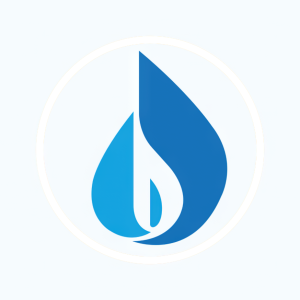Seneca Resources Company and U.S. Well Services Announce All-Electric Well Completion Field Trial
On July 29, 2021, Seneca Resources Company, part of National Fuel Gas Company (NFG), announced a collaboration with U.S. Well Services (USWS) for a field trial in Lycoming County, PA. This trial marks Seneca's first use of all-electric fracturing technology for six well completions, aimed at reducing greenhouse gas emissions. The results will contribute to a unique study assessing low-carbon well-completion equipment. Both companies emphasized their commitment to sustainability and operational efficiency through this innovative technology.
- Collaboration with USWS introduces all-electric fracturing technology.
- Field trial aims to reduce greenhouse gas emissions.
- Contribution to a pioneering study on low-carbon well-completion equipment.
- None.
Insights
Analyzing...
WILLIAMSVILLE, N.Y. , July 29, 2021 (GLOBE NEWSWIRE) -- Today, Seneca Resources Company, LLC (“Seneca”), the Exploration and Production segment of National Fuel Gas Company (NYSE: NFG), and U.S. Well Services (NASDAQ: USWS) (“USWS”) announced their collaboration on an upcoming field trial using USWS’ Clean Fleet® technology to complete a six-well pad in Lycoming County, Pa., within Seneca’s Eastern Development Area. This field trial, which started in mid-July, represents Seneca’s first well completions using all-electric fracturing technology and is the latest example of Seneca’s focus on greenhouse gas emissions reductions. Results from the field trial are expected to be incorporated into Seneca’s ongoing, first-of-its-kind study of available low-carbon well-completion equipment, analyzing the emissions data from real-time well stimulation operations.
”As a long-standing sustainability-focused operator in the lowest emissions intensity shale basin in the U.S., Seneca continues to look for ways to further reduce its carbon footprint, including the use of best in class emissions reduction practices,” said Justin Loweth, President of Seneca. “Our field trial with USWS is another step in this direction, allowing Seneca to evaluate the potential environmental benefits of this well completions solution in our ongoing operations.”
“Seneca is a leading exploration and production operator in the Appalachian Basin that has routinely demonstrated a commitment to reducing the environmental impact of its operations,” said Joel Broussard, the USWS’ President and CEO. “We are excited to demonstrate the capabilities of our Clean Fleet® technology, especially as Seneca undertakes its detailed study of the emissions performance of various hydraulic fracturing solutions. Our technology has consistently delivered measurable reductions in greenhouse gas emissions, as well as significant fuel cost savings, and we look forward to showcasing these benefits for Seneca.”
About National Fuel Gas Company:
National Fuel Gas Company is a diversified energy company headquartered in Western New York that operates an integrated collection of natural gas and oil assets across four business segments: Exploration and Production, Pipeline and Storage, Gathering, and Utility. Seneca Resources Company, LLC is the exploration and production segment of National Fuel Gas Company.
About U.S. Well Services, Inc.:
U.S. Well Services, Inc. is a leading provider of hydraulic fracturing services and a market leader in electric fracture stimulation. The USWS’ patented electric frac technology provides one of the first fully electric, mobile well stimulation systems powered by locally supplied natural gas, including field gas sourced directly from the wellhead. USWS’ electric frac technology decreases emissions and sound pollution while generating operational efficiencies, including customer fuel cost savings versus conventional diesel fleets. For more information visit www.uswellservices.com. Information on the USWS website is not part of this release.







